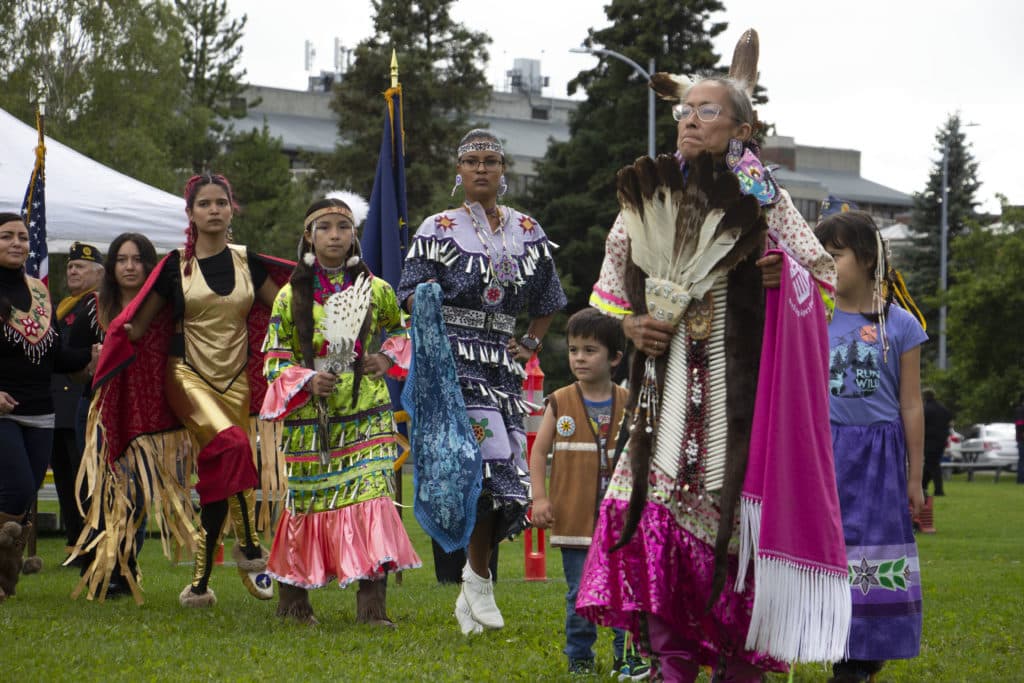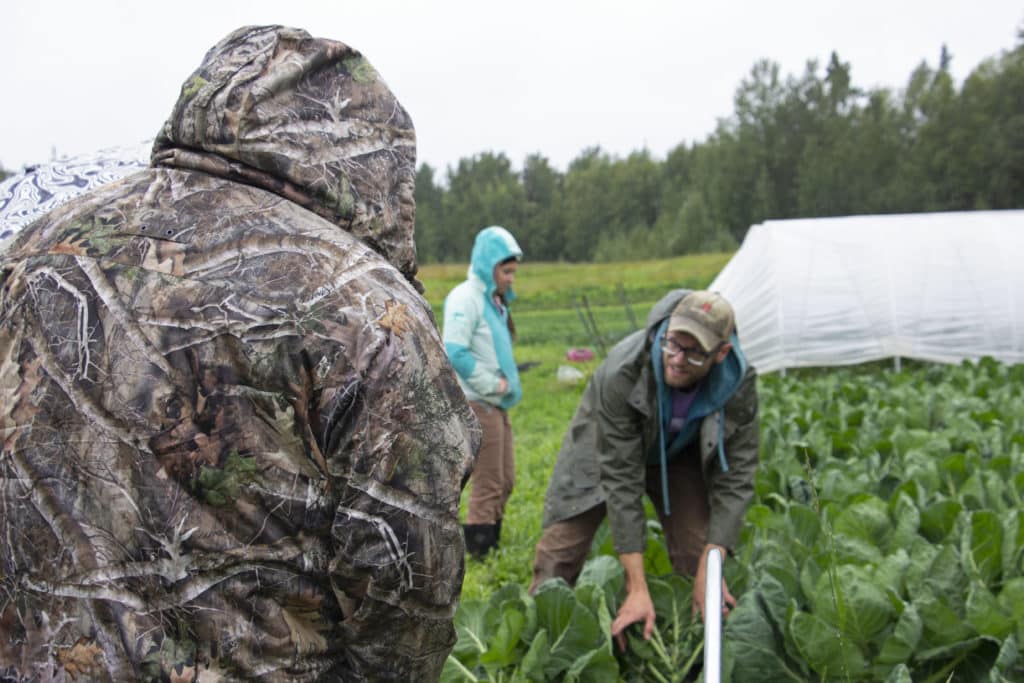This August, a city-wide Potlatch in downtown Anchorage kicked off a series of Indigenous food sovereignty events hosted in part by Alaska Pacific University.
The events were largely coordinated by Steven Holley, a leader of the Ida’ina K’eljeshna dancers. For Holley, Indigenous food sovereignty is both a personal and professional focus. His dance and culture group provides opportunities for Dena’ina youth in Anchorage to grow up in their culture. He also works with Alaska Villages Initiative, collaborating with landowners to implement agriculture and conservation projects to meet their needs.
While conservation is a central part of Alaska Native life, agriculture is less established, he said. “Being Alaska Native, we are traditionally conservationists. We work with the natural variety of the land that our Creator presented to us.” Agriculture, however, requires planting seeds from somewhere else in Alaska soils. While that’s a newer concept, “[agriculture] does exist with our brothers and sisters in the Lower 48 states,” he said.
To support Indigenous food sovereignty, Holley helped plan a series of workshops and invited folks from villages across Southcentral Alaska. Participants came from as far as Nondalton and Copper Center to share ideas for agriculture in their communities.
The week started with a Potlatch, a community ceremony where no one leaves hungry. The event was open to the entire city and commemorated the unifying of the Dena’ina, the original people of the land, with the city of Anchorage. The Potlatch specifically honored the women who hold both communities together, Holley said. In between dancing and drumming, volunteers served moose, salmon, halibut, and cod gifted from the land and sea.
The next day, participants gathered at the Anchorage Museum’s Seed Lab for a workshop on rural and urban agriculture, in partnership with Alaska Community Foundation. On a rainy Tuesday, they gathered at Stickleback Farm on 3rd Avenue to see how Seeds of Change – a youth empowerment program of Alaska Behavioral Health – farms in the heart of the city. In the afternoon, the group shuttled to Palmer for a tour of rural agriculture at APU’s Kellogg campus.
As an Alaska Native-serving university with a working campus farm, APU was an excellent partner in the week.
“APU really provides us a way to get access to information,” Holley said. “And with APU looking to be a Tribal university, it provides us an opportunity to be part of a program that’s culturally appropriate while we build up our culture for agriculture.”
“My big hope is these workshops will help provide knowledge pathways for folks to start building up careers to fit their needs,” Holley continued. “Working with APU and Seeds of Change really gives us that educational platform to get hands in the dirt and give folks a chance to see what is possible.”



